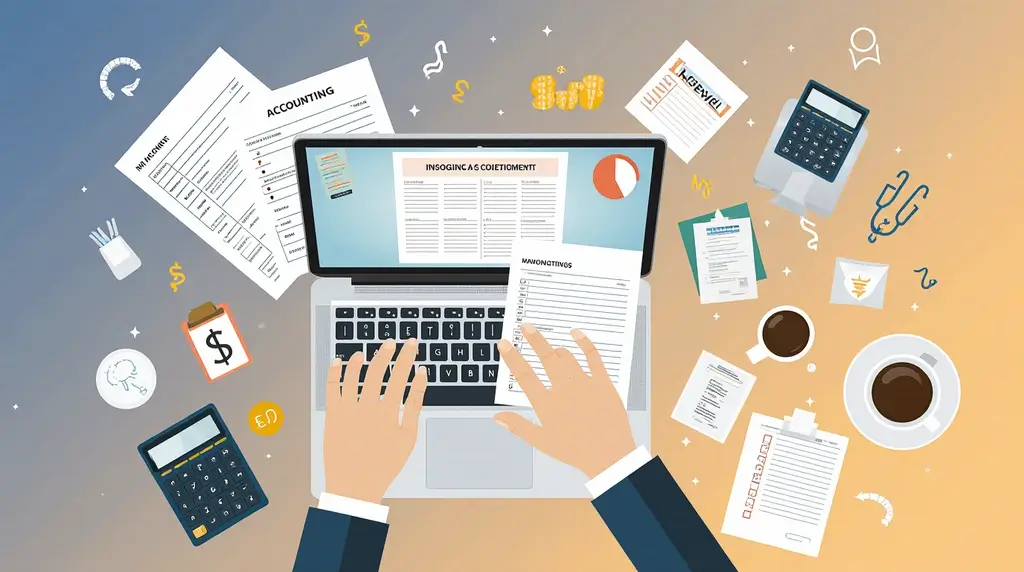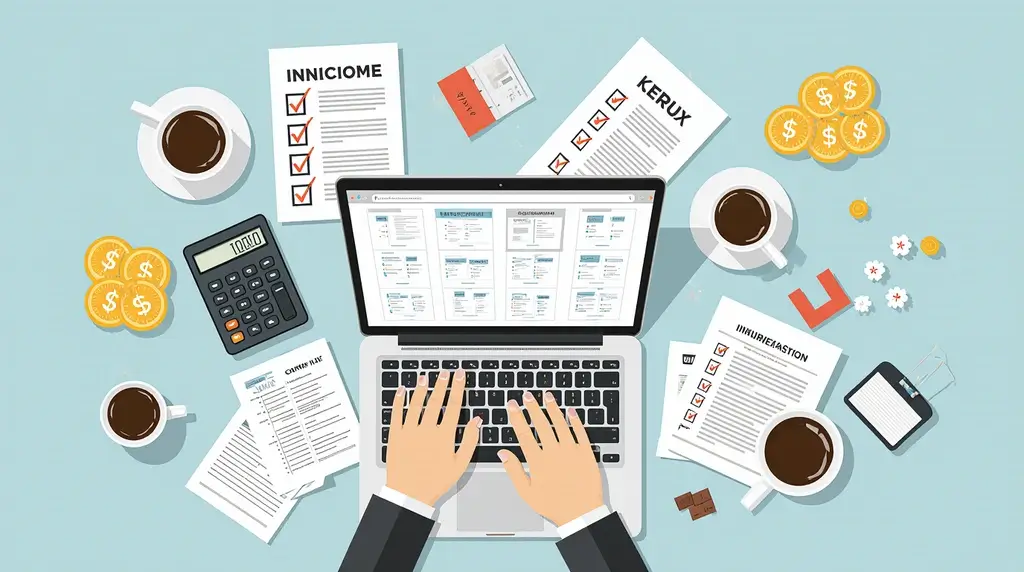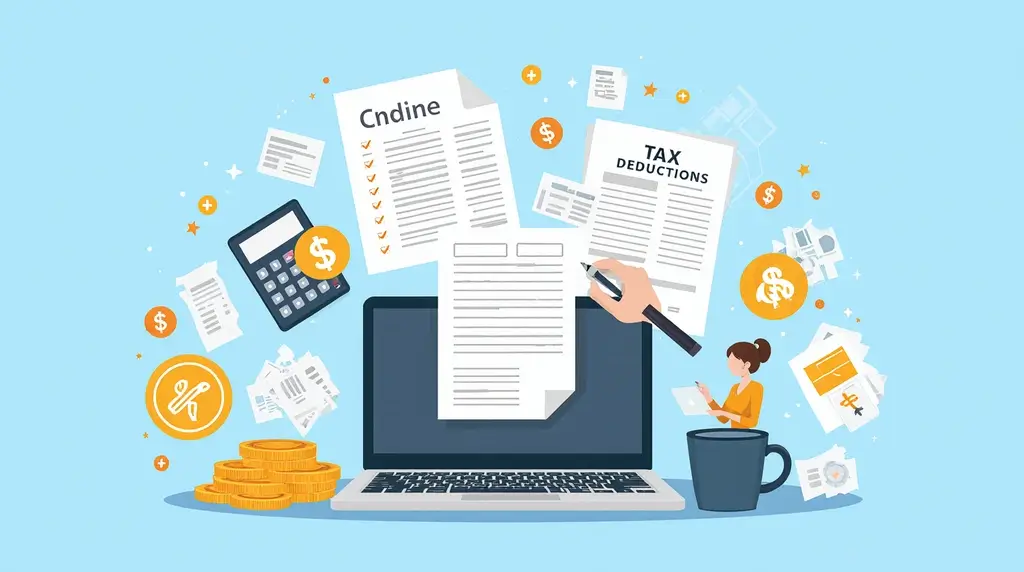Small Business Tax Deductions Every Owner Should Know Now
Table of Contents
Look, I get it—taxes aren’t exactly the most exciting topic. But here’s the thing: understanding small business tax deductions is literally like finding money you didn’t know you had. And who doesn’t love that? get more info about Top Small Businesses Banking;
If you’re running a small business (even if it’s just you and your laptop), you’re probably leaving cash on the table come tax season. The IRS has a whole buffet of deductions available, but most entrepreneurs either don’t know about them or think they’re too complicated to claim. Spoiler alert: they’re not.
Whether you’re hustling from your spare bedroom or managing a small team, this guide’s gonna show you how to keep more of your hard-earned money where it belongs—in your pocket.
Why You Should Actually Care About Small Business Tax Deductions

Okay, real talk. Every legit business expense you can deduct means less money you’re handing over to Uncle Sam. Small business tax USA rules let you write off anything that’s “ordinary and necessary” for running your business—which is actually a lot more than you’d think.
Here’s how it works: let’s say your business made $100,000 this year (congrats!). If you’ve got $30,000 in deductible expenses, you’re only paying taxes on $70,000. Depending on your tax bracket, that could save you several thousand bucks. That’s not chump change—that’s money you can use to grow your business, upgrade your equipment, or just breathe a little easier when things get tight.
The Home Office Deduction: Your Space = Tax Savings
If you work from home (and let’s be honest, who doesn’t these days?), the home office deduction is your new best friend. This is one of those IRS tax deductions that’s surprisingly easy to claim, but tons of people skip it.
Here’s the deal: if you’ve got a space you use exclusively for business, you can deduct it. You’ve got two ways to do this:
The Easy Way: Just multiply your home office square footage by $5. So if your office is 200 square feet, that’s a cool $1,000 deduction. Easy peasy.
The Detailed Way: Calculate your actual costs—mortgage interest, rent, utilities, insurance—and deduct the percentage your office takes up in your home. More work, but usually a bigger deduction.
The catch? “Exclusively” is the key word here. You can’t claim your kitchen table where you also eat dinner and help the kids with homework. But a spare bedroom you’ve converted into an office? Absolutely fair game.
Your Car Isn’t Just Transportation—It’s a Tax Write-Off
Using your car for business? Cha-ching! You’ve got options here, and both can save you serious money.
Standard Mileage: Track your business miles and multiply by the IRS rate (it changes yearly, but it’s usually pretty decent). This covers everything—gas, wear and tear, the works.
Actual Expenses: Add up everything you spend on your car and deduct the business percentage. Did some math, and this sometimes works out better if you drive a lot or have an expensive car.
Pro tip: Get yourself a mileage tracking app. Your future self will thank you when tax time rolls around and you’re not trying to recreate six months of driving from memory. Oh, and your daily commute doesn’t count (I know, bummer), but client visits, supply runs, and business events totally do.
Business Travel: Work Hard, Deduct Smart

When you’ve gotta travel for work, the IRS is surprisingly generous. Flights, hotels, rental cars, Ubers—they’re all deductible. Even half your meals while you’re traveling count!
The rule is the trip has to be primarily for business. But here’s the fun part: if you add a couple personal days to a business trip, you can still deduct the business portion. Three-day conference plus a weekend exploring the city? Deduct those three business days.
Just keep your receipts and write down what the trip was for. The IRS isn’t big on surprises, and these tax saving tips 2026 only work if you can back them up.
Equipment: Buy Now, Deduct Now
Need a new laptop? Camera? Fancy espresso machine for your coffee shop? Thanks to something called Section 179, you can often deduct the entire purchase price in the year you buy it instead of spreading it out over several years.
We’re talking up to $1.22 million for 2025 (yeah, that’s a lot of laptops). This is basically the government’s way of saying, “Hey, go invest in your business!”
So if you’ve been eyeing that equipment upgrade, tax season might be the perfect time to pull the trigger. Your business gets better tools, and your tax bill gets smaller. Win-win.
Marketing Expenses: Every Dollar Counts
Here’s some good news: literally everything you spend on marketing and advertising is 100% deductible. And I mean everything.
Your website hosting? Deductible. Facebook ads? Deductible. Those business cards you ordered? Deductible. That billboard you rented (hey, dream big)? Also deductible.
This includes:
- Social media ads
- Your website design
- Email marketing tools
- SEO services
- Promotional swag
- Sponsorships
Marketing can eat up a big chunk of your budget, so it’s nice knowing Uncle Sam’s helping foot the bill, at least partially.
Professional Help Isn’t Just Smart—It’s Deductible
Paying your accountant, lawyer, or business coach? Those fees are deductible too. Same goes for:
- Your bookkeeper
- Business insurance
- Industry association memberships
- Trade magazines and subscriptions
- Business software (QuickBooks, project management tools, you name it)
Basically, if you’re paying someone to help you run your business better or keep it legal, you can write it off. Which makes hiring pros a lot more affordable.
Employee Costs: The Gift That Keeps on Giving

Got employees? Their salaries, bonuses, and benefits are all deductible. We’re talking:
- Health insurance
- Retirement plan contributions
- Life insurance
- Training programs
- Even wellness programs
And if you’re self-employed, here’s a nice perk: you can deduct health insurance premiums for yourself and your family as an adjustment to income. That reduces both your income tax AND self-employment tax. Pretty sweet deal.
The Boring Stuff That Adds Up
Don’t sleep on the small expenses. Office supplies, postage, printer ink, coffee for client meetings—it all counts. Sure, a $20 pack of printer paper doesn’t seem like much, but when you track everything throughout the year, you’d be surprised how it adds up.
Get yourself some expense tracking software or even just a dedicated app on your phone. Snap photos of receipts as you go. Future you will be so grateful.
Insurance: Protecting Your Business While Saving Money
Business insurance isn’t optional (well, legally sometimes it is, but you really shouldn’t skip it). The good news? All these premiums are deductible:
- General liability insurance
- Professional liability (errors & omissions)
- Property insurance
- Workers’ comp
- Cyber liability insurance
So you’re protecting your business AND reducing your taxes. Not too shabby.
Loan Interest and Bank Fees Count Too
Borrowed money to fund your business? The interest you pay is deductible. This includes:
- Business credit card interest
- Business loan interest
- Lines of credit
- Even mortgage interest if you own your business property
Bank fees, merchant processing fees, basically any fees related to doing business? Yep, deductible. Those little charges add up, so make sure you’re claiming them.
Record-Keeping: Your Secret Weapon
Okay, here’s the not-fun but super important part: you’ve gotta keep good records. Like, really good records. The IRS doesn’t take “I swear I spent that money on business stuff” as proof.
Here’s what you need to do:
Go digital: Get accounting software. QuickBooks, FreshBooks, Wave—pick one and actually use it.
Save everything: Receipts, invoices, bank statements. Keep them for at least seven years (I know, it’s a lot).
Keep business and personal separate: Get a business bank account and credit card. Don’t mix your coffee runs with your business expenses.
Write notes on receipts: Who’d you meet? What’d you discuss? Especially for meals and travel.
Trust me, if you ever get audited (fingers crossed you don’t), you’ll be SO glad you did this.
Deductions You’re Probably Missing
Let me hit you with some deductions people forget about all the time:
- Business meals: 50% of meals with clients or potential clients
- Education: That online course or conference? If it improves your business skills, it’s deductible
- Business licenses and permits: All those fees to stay legal? Write ’em off
- Bad debts: Customer never paid their invoice? You can deduct it
- Start-up costs: Up to $5,000 of what you spent before officially launching
These can add up to some serious savings, so don’t leave them on the table.
Don’t Make These Rookie Mistakes
Real quick, here’s what NOT to do:
Don’t claim personal stuff: That family vacation isn’t a business trip just because you checked your email once. The IRS isn’t stupid.
Don’t get too creative: If something feels sketchy, it probably is. Ask a professional.
Don’t ignore state taxes: Your state might have its own deductions too.
Never, ever make stuff up: Tax fraud is no joke. It’s not worth it.
Think Ahead: Planning for Next Year
Smart business owners think about taxes year-round, not just in April. Here’s how to be smart about tax saving tips 2026:
Time your big purchases: Need new equipment? Think about whether buying it in December or January makes more sense tax-wise.
Max out retirement contributions: It saves you money now AND sets you up for the future.
Prepay expenses: If you can afford it, pay January bills in December to deduct them this year.
Check in quarterly: Touch base with your accountant every few months to see where you stand.
Should You Hire a Tax Pro?
Look, I’m all for DIY stuff, but small business tax USA rules can get complicated fast. Working with a good CPA or Enrolled Agent is often worth every penny:
- They find deductions you’d miss
- They keep you out of trouble with the IRS
- They save you time (and stress)
Yeah, it costs money upfront, but a good tax pro usually saves you way more than they cost. Plus, their fees are—you guessed it—deductible!
The Bottom Line
Here’s the thing about small business tax deductions: they’re not some shady loophole or gray area. Congress literally created them to encourage people like you to start and grow businesses. Use them!
Track your expenses, keep good records, claim everything you’re entitled to, and work with a professional if things get complicated. The money you save on taxes is money you can invest back into your business.
So stop leaving money on the table. Start tracking those expenses, learn what you can deduct, and keep more of what you earn. Your business (and your bank account) will be better for it.
And hey, if dealing with IRS tax deductions means you get to keep more of your hard-earned cash, suddenly taxes don’t seem so boring after all, right?
Small Business Tax Deductions Every Owner Should Know Now
Look, I get it—taxes aren’t exactly the most exciting topic. But here’s the thing: understanding small business tax deductions is literally like finding money you didn’t know you had. And who doesn’t love that? get more info about Top Small Businesses Banking;

